Strategies for getting the sleep you need
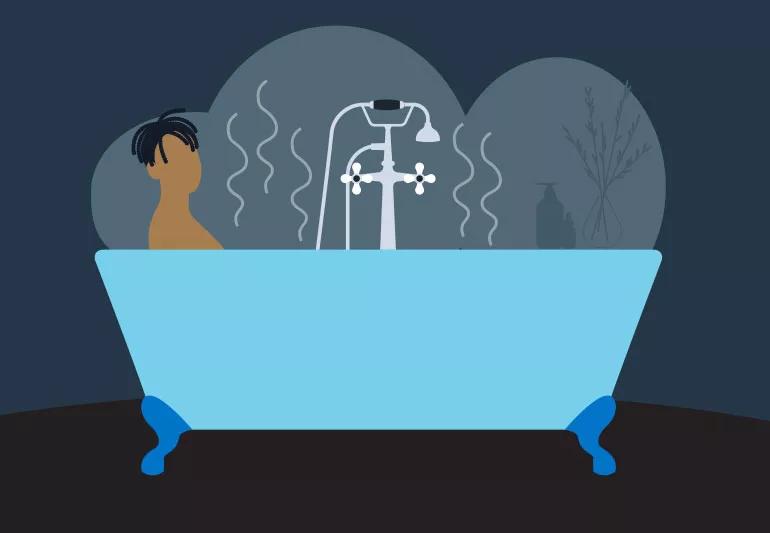
If you’ve been kept awake at night by the irresistible urge to move your legs, the main symptom of restless legs syndrome (RLS), you’ve probably searched for ways to find relief.
Advertisement
Cleveland Clinic is a non-profit academic medical center. Advertising on our site helps support our mission. We do not endorse non-Cleveland Clinic products or services. Policy
The need for a remedy is important, not just because of discomfort but because it can severely disrupt sleep and lead to other health issues. While full relief can be difficult to come by, there are home remedies that can help ease those symptoms.
To get an idea of what causes RLS and what you can do about it, we spoke with sleep doctor J. Andrew Berkowski, MD.
According to Dr. Berkowski, restless legs syndrome is mostly a sensation problem with your brain, not your legs. But those issues do affect the muscles and nerves in your legs.
“It’s not 100% a brain issue, but it does cause these abnormal sensations in the leg area,” he says.
While there are a few potential causes, Dr. Berkowski points out two main ones:
Advertisement
Certain prescription medications (such as anti-seizure medications) can relieve RLS symptoms. But there are also several things you can do at home to help relieve these symptoms.
For the most part, many of the home remedies for easing RLS symptoms are easy and painless and don’t require a prescription or a trip to the doctor. Still, if your symptoms are serious or persist, it’s something to consult with your healthcare provider about.
Heated or cooled pads, often used to relieve swelling caused by injuries and other conditions, have a long history as a home remedy. Dr. Berkowski says they can be effective by creating a new sensation for the brain to process, reducing the uncomfortable sensation produced by RLS.
You can buy an inexpensive cold or warm compress at a store, but the simplest way to make one is to soak fabric in cold or warm water and place it against your skin.
If compresses aren’t your thing, a hot bath or shower can also help relieve symptoms, says Dr. Berkowski. Because the issue with RLS is how it originates in your brain, the key factor is distracting those impulses coming from your brain. “If you can stimulate your legs, that can help to shut off the feedback loop to the brain,” he says.
A hot bath or shower provides two stages of relief, he adds. “The hot water opens up your blood vessels and aids circulation. But when you step out of the shower, you’re hit with a wave of cold air which lowers your core body temperature and that can help with sleep onset.”
Another way to help your brain focus on other sensations would be compression wraps. Dr. Berkowski points out that there is currently an FDA-approved wrap, the Restiffic® Restless Leg Relaxer foot wrap, on the market.
This foot wrap applies pressure to specific muscles in your foot which, it’s theorized, sends certain signals to overactive nerves that calm the nerves and muscles and relieve RLS symptoms.
The catch to this compression wrap is that it requires a doctor’s prescription. But once you’ve got one in hand, you can keep it by your bed for those late-night urges. “Any kind of stimulation to the legs is beneficial,” Dr. Berkowski says. Even rubbing or massaging the legs can provide temporary relief.
Using your diet to safely correct any iron deficiency can help alleviate RLS symptoms. The catch, Dr. Berkowski says, is knowing what your iron levels are. Iron supplements are certainly one way to get those levels up but you’ll need to be sure to consult with your doctor about that. “If your iron levels are already normal or even too high, more iron won’t help give you those benefits,” he adds.
Advertisement
If you are iron deficient, though, there are plenty of healthy ways to get iron through your diet. “Eating red meat can really boost iron levels,” Dr. Berkowski says. “And if you’re vegetarian, eating tofu, legumes, lentils and spinach is a way to get that iron.”
Other foods that are rich in iron include eggs, fish and nuts (like cashews and almonds).
When it comes to what not to consume, Dr. Berkowski lists the four things you should avoid to help ease your RLS symptoms:
“These products are all known to trigger RLS symptoms,” Dr. Berkowski says.
Additionally, if you have wheat or dairy allergies but still consume those products, that could also be a source of trouble. “Wheat and dairy allergies can cause inflammation which, in turn, cause issues with iron absorption,” says Dr. Berkowski. “It’s something to keep in mind.”
Since RLS is a condition that involves the urge to move your legs, one way to relieve those urges is to ... well, move your legs. “A mild to moderate walk in the late evening can do a lot to relieve those symptoms,” Dr. Berkowski says. “And people who are active throughout the day, versus being sedentary, also seem to have a reduction in symptoms.”
Advertisement
There are some paradoxical issues with this approach, though. If you’re too active at night, you could wind up waking your body up more when you need to be winding down. So keep your goal on that sweet spot of enough movement to relieve your symptoms but nothing too heavy.
Additionally, be careful if you’re very active throughout your day. “People who vigorously exercise during the day, like a long bike ride or a particularly long run (including marathon training), can potentially trigger those symptoms,” Dr. Berkowski notes.
Restless legs syndrome affects between 20% and 30% of pregnant women. A primary cause of this is iron deficiency. Iron is an essential part of nutrition while pregnant because of the higher risks of developing iron-deficiency anemia.
Between this and the previously mentioned connection between RLS and iron deficiency, it’s not hard to figure out that connection. Working with your doctor to make sure you’re keeping your iron levels up, as well as other essential vitamins, can help alleviate these symptoms.
Also, as long as your health permits and your doctor gives you the green light, light exercise helps, too, whether it’s walks, aerobics or other types of lower body exercises that help keep those muscles stimulated.
Advertisement
The good news, says Dr. Berkowski, is that if RLS wasn’t an issue for you before pregnancy, chances are it’ll eventually fade within a few months after you give birth.
Of course, home remedies have their limits. If these ideas don’t work for you — and they don’t work for everyone — don’t hesitate to seek out the advice of a sleep expert.
Not everyone with restless legs needs to see a doctor, but severe cases can be debilitating. “Some people feel so desperate and helpless,” Dr. Berkowski says, as their lack of sleep can cause depression and anxiety.
He says to consult a doctor if either of the following applies to you:
If these home remedies still fall short, your doctor can provide you with more information about the potential prescription medicines that can help.

Sign up for our Health Essentials emails for expert guidance on nutrition, fitness, sleep, skin care and more.
Learn more about our editorial process.
Advertisement

At-home treatments and lifestyle changes may help ease the symptoms and improve the appearance of varicose veins — but they aren’t a cure

Regular exercise, an iron-rich diet, adequate sleep and bedtime routines that include a warm bath or massage may help with your kid’s RLS
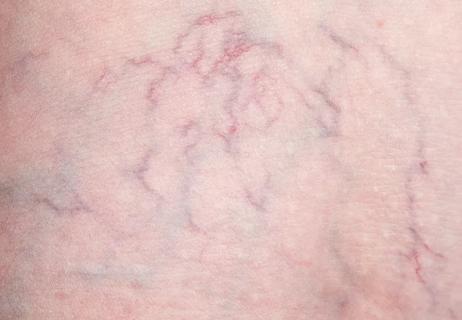
Unlike varicose veins, spider veins don't necessarily indicate poor circulation
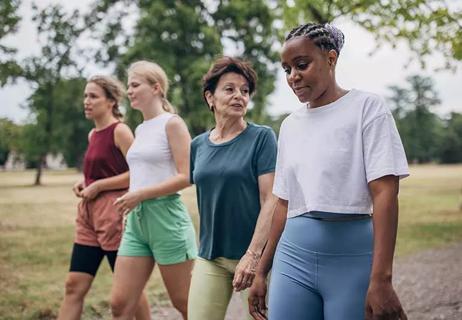
Cardio can reduce the appearance of varicose veins, but only temporarily
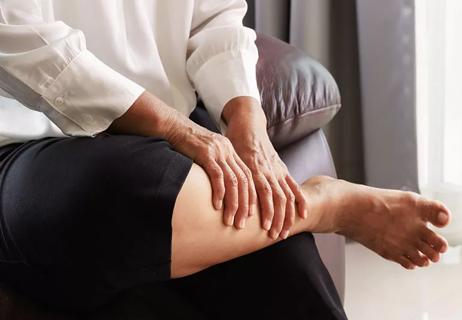
It could be your feet need a rest, but swollen legs may also be a sign of a serious condition
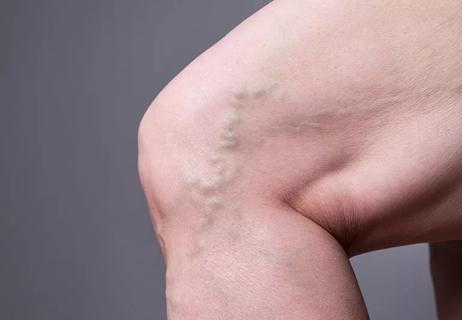
Some symptoms should be taken seriously
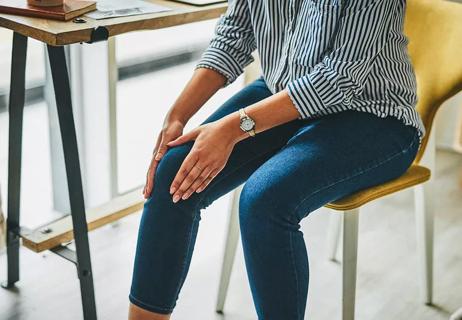
Pain may signal a damaged nerve or herniated disk
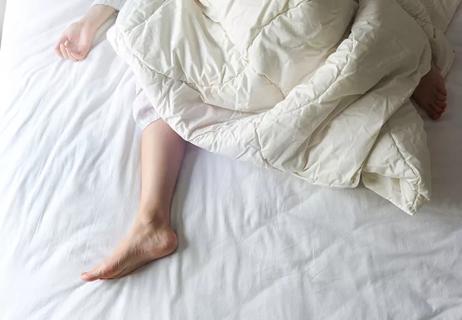
The short answer from an interventional cardiologist

Even small moments of time outdoors can help reduce stress, boost mood and restore a sense of calm

A correct prescription helps your eyes see clearly — but as natural changes occur, you may need stronger or different eyeglasses

Both are medical emergencies, but they are very distinct events with different causes